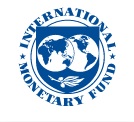-
NBS Tasks
Browse topics
- Monetary policy
- Financial market supervision
- Financial stability
- Banknotes and coins
- Payments
- Statistics
- Research
- Legislation
-
Publications
- Activity Report of the NBS Innovation Hub Annual Report Economic and Monetary Developments Financial Stability Report Investment Policy Statement of the National Bank of Slovakia Macroprudential Commentary Policy Briefs
- Report on the Activities of the Financial Market Supervision Unit Research Papers: Working and Occasional Papers (WP/OP) Statistical Bulletin Structural Challenges Other publications Sign up for your email notifications about publications
- About the Bank
- Media
- Frequently asked questions
-
For the public
Browse topics
- About the Bank
- Exchange rates and interest rates
- Banknotes and coins
- Payments
- Financial stability
- Financial market supervision
- Statistics
- Legislation
-
Publications
- Activity Report of the NBS Innovation Hub Annual Report Economic and Monetary Developments Financial Stability Report Macroprudential Commentary
- Report on the Activities of the Financial Market Supervision Unit Statistical Bulletin Other publications Sign up for your email notifications about publications
- Frequently asked questions
- Media
- Careers
- Contact
International institutions
In line with its mandate, Národná banka Slovenska (NBS) participates in international organisations and fora at both regional and global levels. In certain institutions, NBS is directly involved in the formation of policies and rules concerning monetary policy and the financial market. In other organisations, NBS engages in international dialogue on macroeconomic and economic policy issues where the focus is on monetary policy and financial markets.
NBS also shares with several other central banks the knowledge and practical experience it has gained from the exercise of its mandate.
-
International Monetary Fund (IMF)

The International Monetary Fund (IMF) is an international financial institution based in Washington, D.C. (USA), whose main role and mandate is to ensure the stability of the international monetary and financial system.
The IMF achieves this objective using three tools:
-supervision of global economic developments as well as developments in the economies of individual member countries, i.e. art IV Missions. The IMF periodically assesses global economic developments in its flagship reports – the World Economic Outlook, the Global Financial Stability Report and the Fiscal Monitor.
The latest IMF art IV Report on the Slovak Republic:
Slovak Republic 2023 art IV Report.pdf (7.44 MB)
–providing loans to member countries experiencing balance of payments needs. The IMF requires these countries to prepare and fulfil individual economic recovery programmes as a condition of providing loans.
–technical assistance. Through technical assistance and various forms of training, the IMF supports member countries to build stronger and more resilient economies. Areas of support include greater tax efficiency, public expenditure management, monetary and exchange rate policies.
The Slovak Republic became a member of the IMF on 1 January 1993 following the division of the Czechoslovak Federative Republic.
The Governor of the NBS holds the position of Governor for the Slovak Republic in the IMF Board of Governors. The Governor’s alternate is the State Secretary of the Ministry of Finance of the Slovak Republic. The IMF Governors meet twice a year in the framework of the so-called Spring and Annual Meetings of the IMF and the WB.
The Slovak Republic is part of the Central and Eastern European Constituency of the IMF, together with Austria, the Czech Republic, Kosovo, Hungary, Slovenia and Turkey, represented by an Executive Director elected every two years. Under the constituency agreement, the Slovak Republic has a position of a senior advisor.
At present, the quota of the Slovak Republic is set at 1 001.0 million SDR (Special Drawing Rights), on the basis of which SR has 11,469 votes allocated to it in the IMF, which represents 0.23% of the total IMF votes.
For more information on the IMF and its activities, please visit www.imf.org/en/About .
-
World Bank Group (WBG)

The World Bank Group (WBG) is a group of five closely linked international financial institutions.
Two organisations are covered by the term World Bank (WB):
International Bank for Reconstruction and Development (IBRD)
International Development Association (IDA).
Together with three others, they form the WB Group:
International Finance Corporation (IFC),
Multilateral Investment Guarantee Agency (MIGA)
International Centre for Settlement of Investment Disputes (ICSID).
The Slovak Republic became a member of the IBRD, IDA IFC and MIGA on 1 January 1993 after the division of the Czechoslovak Federative Republic. In 1994 it also joined the ICSID. The representative of the Slovak Republic in the Board of Governors of the World Bank in the position of Governor is the Minister of Finance of the Slovak Republic. The position of the alternate Governor in the World Bank is held by the Deputy Governor of the National Bank of Slovakia.
In the Executive Board of the World Bank, Slovakia belongs to the so-called Belgian constituency group together with Austria, Belgium, Belarus, the Czech Republic, Kosovo, Luxembourg, Hungary, Slovenia and Turkey.
For more information on the WB Group and its activities, please visit www.wbg.org .
-
Bank for International Settlements (BIS)

The Bank for International Settlements (BIS) is an international financial organisation. It was founded on 17 May 1930, making it the oldest such institution in the world. It is also known as the “Bank of Central Banks”. Today, the BIS is a venue for deepening cooperation between central banks, developing supervisory standards, collecting and publishing statistics, research, and the BIS also performs banking functions for national central banks.
The National Bank of Slovakia has been a member and shareholder of the BIS since 1993, as one of the successor central banks of the Národná banka Československá, which joined the BIS in 1930.
The Governor of the NBS participates in meetings of the Governors of the member central banks, which provide a platform for discussions on global economic and financial developments, current issues of the international financial system, monetary and financial stability, financial market supervision and central bank governance.
The NBS cooperates with the BIS at various levels and is represented in a number of committees and working groups (https://www.bis.org/stability.htm )
For more information on the BIS and its activities, please see www.bis.org .
-
Organisation for Economic Co-operation and Development (OECD)

Národná banka Slovenska participates in meetings of OECD committees and working groups. (www.oecd.org)